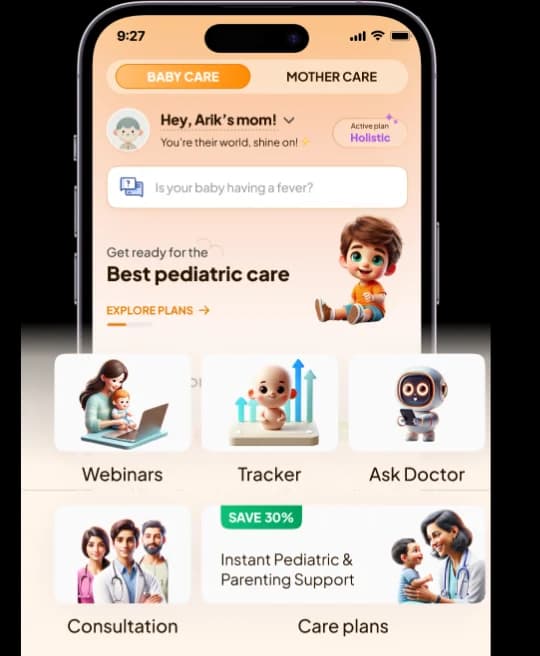
Do you suspect your infant or toddler may be experiencing a developmental delay?
What Does Developmental Delay Mean?
When a child doesn't reach a developmental milestone, this is called a developmental delay. They may be minor or major.
Although there is much variation in the specific developmental milestones that children should have reached a given age, a generalization can be made. It differs by a child. For example, w hen ready to walk, a kid may skip crawling. Not all kids reach the following level. In some cases, kids don't walk until age 2. A developmental delay occurs when a child misses crucial milestones.
Most delayed development cases are mild and resolved. Causes are sometimes unknown. However, you can take steps to help your child if he or she has a developmental delay.
Developmental Delays In Children: Their Various Forms
Pediatricians identify several significant categories of child developmental delays, including:
- Cognitive delays - Cognitive delays in babies can make it hard for them to be aware and think clearly, leading to learning problems that worsen when the child starts school.
- Language or speech development delays - A child's ability to communicate and express themselves and their ability to understand and identify new words and concepts can be negatively impacted by language or speech development delays.
- Motor delay - A delay in motor development can affect both your child's fine motor skills (such as being able to pick up a small object or tie their shoes) and their gross motor skills (such as being able to run or jump) (like crawling or rolling over)
- Social, emotional, or behavioral delays - A child's capacity to interact with others might be affected by developmental delays in social, emotional, or behavioral domains because the child may receive information and react to the environment in a way that is different from others children of the same age.
- Global developmental delays - Delays in more than one area of development occur when a child is considered to have "many developmental delays."
Early Warning Signs Of Infants With Developmental Delays
- Newborns With Less Than Three Months Of Age
- No head-up when lifted up.
- Baby overextends his spine and neck when carried in your arms.
- At 3 months, he gets stiff or crosses his legs when you try to pick him up.
- Lethargic behaviour, including poor sucking and delayed eating
- Lack of sensitivity to both bright lights and loud noises
- Frowsy expression
- Having a hard time switching focus or following moving objects
- Nobody's moving their hands or feet.
- Up To 6 Months
- Lacks the ability to grasp or reach for toys while being 4–5 months old.
- Unable to maintain a healthy head position
- Does not try to swallow her favourite toy.
- When handled and stood on, baby doesn't push their legs.
- Does not overturn
- Nobody interacts nor smiles.
- Helpless to sit down even when supported
- Up To 9 Months
- Lacking the ability to sit up straight by the age of 8 months
- Still unable to place objects in her mouth
- Not making attempts to grab stuff
- Weak in the leg department; cannot carry more than this much.
- failing to make any noise
- Between 9 And 12 Months
- weak; requiring support to stand
- Doesn't crawl at all, or crawls in such a way that baby falls over more often.
- Does not babble
- Doesn't indicate locations with pointing
What are the most common causes of development delay?
The root causes of delayed development are multiple and complex. Such issues could be:
- Malnutrition
- Being born prematurely
- Alcohol and drug consumption during pregnancy
- Poor eyesight or hearing
- Physical abuse or neglect
- Oxygen deficiency during delivery
- Genetic disorders like Down syndrome or muscular dystrophy
- Certain other medical issues during pregnancy
How To Recognize The Early Warning Signs Of A Child's Delay In Development?
- Between The Ages Of 13 And 24
- 18 months old and unable to walk
- Always walks on the tips of his feet
- Reduced growth rate
- Does not speak at least five meaningful words.
- Fails to understand or follow even the most elementary directions
- A Period Of Thirty-Six Months
- Having trouble using the stairwell because of regular falls.
- Frequent salivation; regular salivation
- Lacks the ability to speak in simple, brief sentences.
How To Help Your Child With Delays In Development?
- Be on the lookout for warning signs at all times. If you detect these delays early on, you can do more to help your youngster catch up. Immediately seek the advice of a paediatrician. They will advise you, point out your flaws, and suggest screening if it's needed.
- Be sure to take notes. Don't forget to include dates. Get your kid to the next stage on the chart by keeping an eye on his or her progress.
- Consider prematurity and other underlying causes. A kid born eight weeks preterm, for example, will likely be eight weeks behind her peers in reaching that developmental milestone.
- You can enrol children in intervention centres staffed by trained professionals who specialise in resolving developmental concerns.
- Keeping in regular contact with teachers is crucial for keeping tabs on your children's progress and behaviour while they are away at school.
Consult your pediatrician if you think your child is behind in developmental milestones
